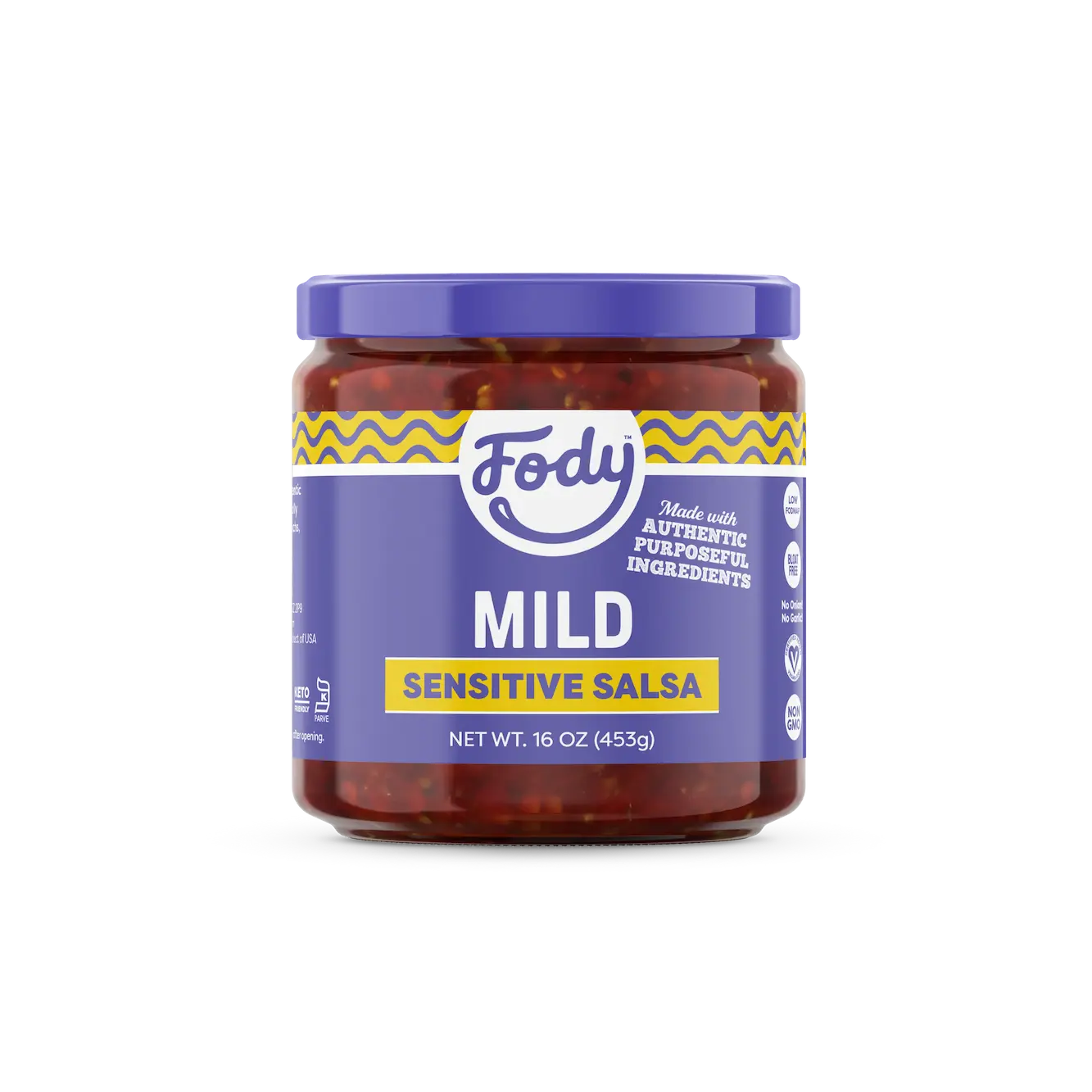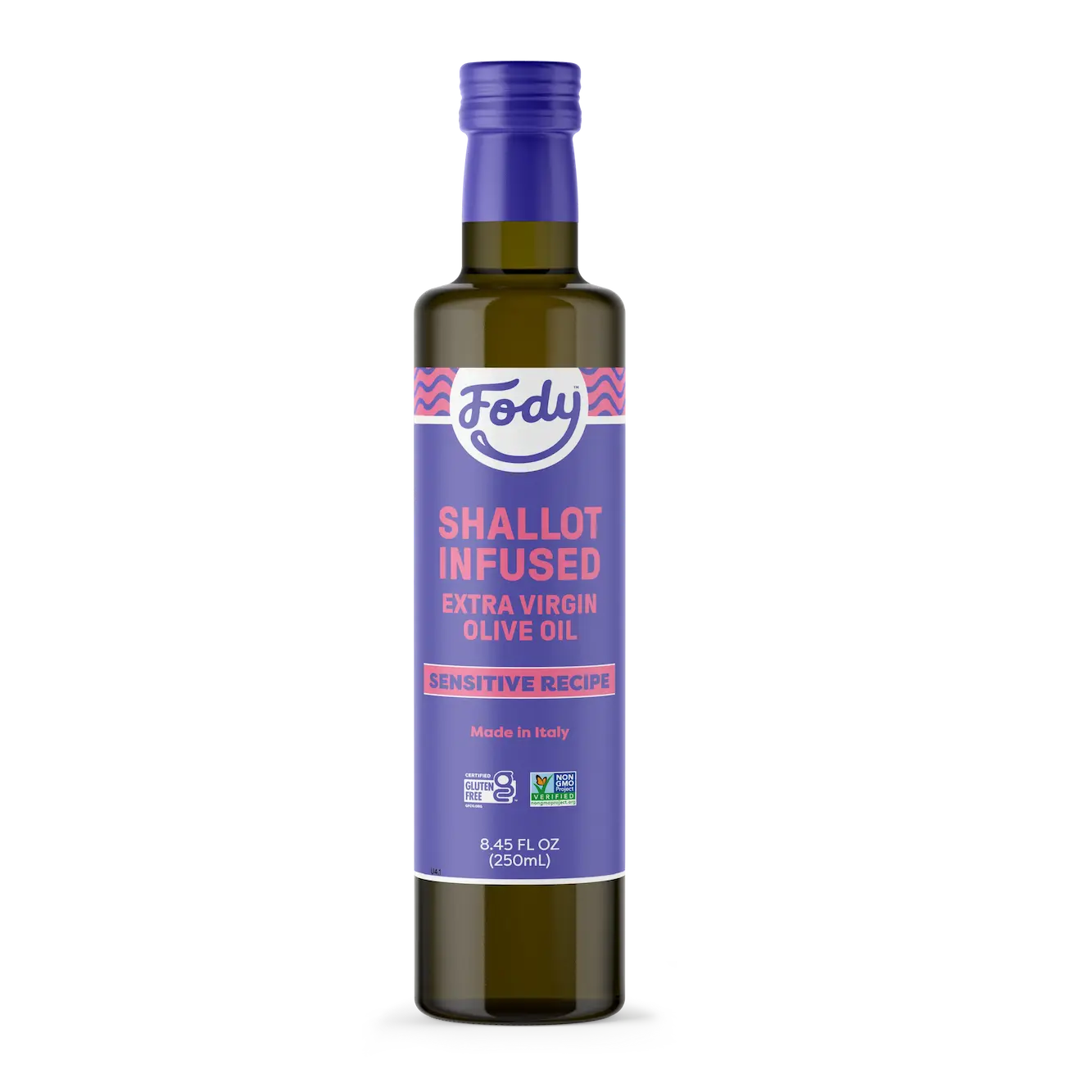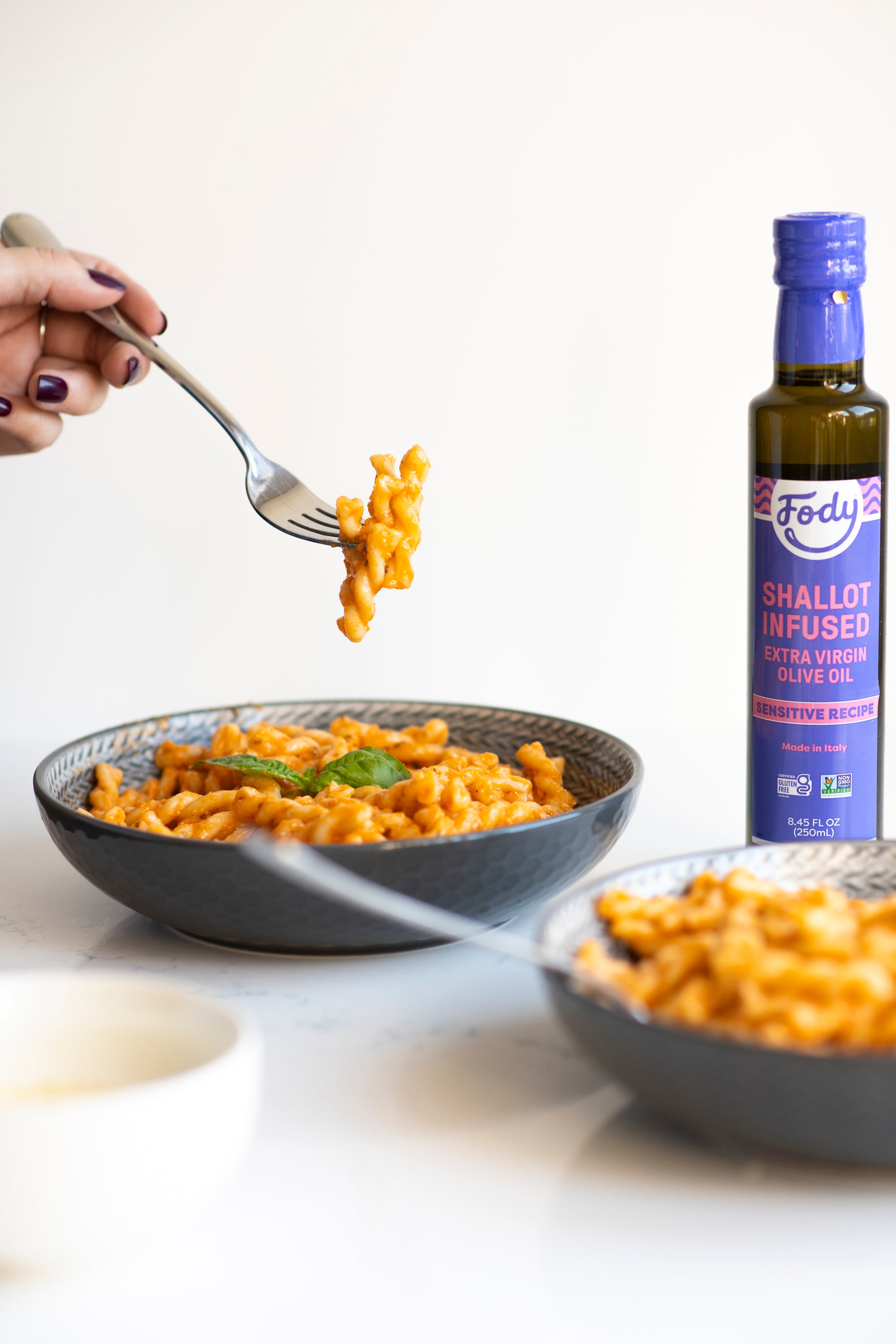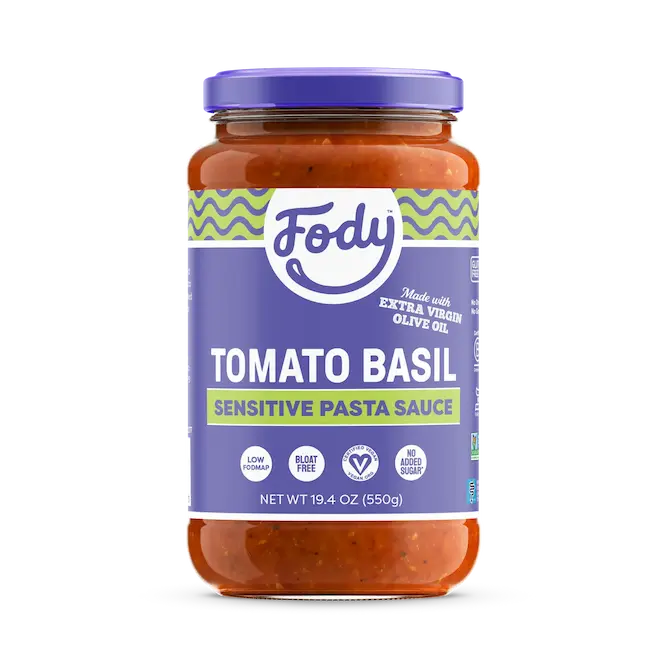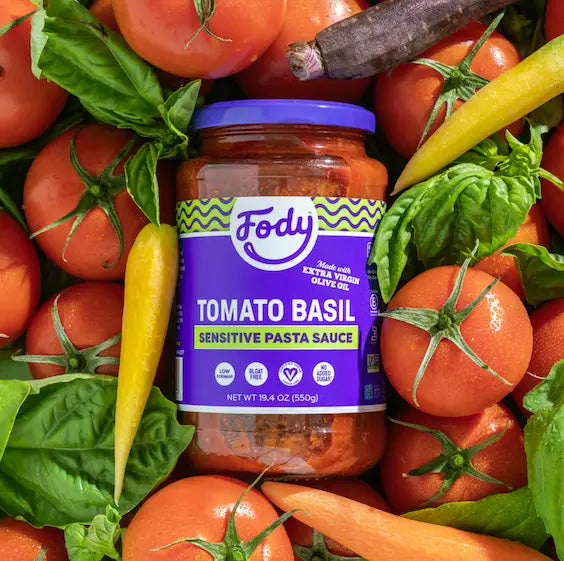

The Importance of Gut Health: What Is It and Why Does It Matter?
Although you may not spend much time thinking about your GI tract, gut health is incredibly important. Our bodies are made up of trillions of bacteria that not only help us process food but also enable us to maintain overall well-being and whole-body health. And before you say “ew,” you should know that these bacteria are the good kind – they help fight inflammation, digest, metabolize, improve your immune system, lower the risk of certain diseases – and a whole lot more.
While research is still being done, it’s pretty clear that our GI systems have a ton of functions beyond processing breakfast, lunch, and dinner. In fact, gut health may be a window to your overall body balance, so if it's trying to tell you something, here's why you need to listen.
What Affects Your Gut Health?
Of course, one of the top factors affecting your gut health is the food you eat. Maintaining a gut health diet is the quickest way to fast track to a better functioning GI system (more on that later), but it’s not the only way.
Aside from food, external factors like stress, sleep patterns, lifestyle, and pollution have a large impact. Plus, any medications we consume (such as antibiotics or prescriptions) play a role too.
Why You Should Always Trust Your Gut
Yup, it’s true what they say: “your gut is your second brain.” And in fact that “gut feeling” isn’t all in your head – it is actually physical.
When your stomach is upset or imbalanced for whatever reason, it sends off warning signals to your brain through a series of nerves and hormones, telling it that something’s out of whack. That’s why you feel groggy or brain foggy after a heavy meal and also the reason your whole body feels off if you’re in a stressful situation.
You might experience common symptoms like bloating, gas, diarrhea, stomach pain, or nausea that are all direct signs that something in the gut is off balance.
On the other hand, a healthy gut contains healthy bacteria and immune cells that ward off infectious agents like (bad) bacteria, viruses, and fungi. This ultimately sends positive signals to your brain and makes your whole body feel good.
How to Get in Good With Your Gut Flora
Luckily, there’s a lot you can do to get your gut bacteria back in order. At Fody, we truly believe the secret is getting to know your own body, listening closely to what it has to say, and making adjustments accordingly.
Get to Know Your Triggers
To get started, we suggest keeping a little diary that includes meals and snacks consumed, any symptoms you’re experiencing that day, potential stressors, and anything else that may play a part in how you’re feeling on a day-to-day basis. In time, this may help you pinpoint and reduce (or eliminate) any issues leading to unbalanced gut health.
Get Familiar with Ingredient Labels
Label reading may seem a little tedious at first, but it can help you get in good with your gut. Look out for any fillers and additives, keep an eye out for added sweeteners (this can include ingredients like sorbitol, xylitol, fructose, dextrose, and any other sneaky names for sweeteners). If you’ve identified anything, such as gluten, to be a trigger in your food diary – now would be a good time to try to cut down on that too.
Follow a Gut Health Diet
Eat Lots of Prebiotics and Probiotics
One of the things your gut loves most is a balance between prebiotics and probiotics. You can either take a supplement for this or try adding gut-happy products. If following the Low FODMAP diet, some great probiotic options include Low FODMAP coconut yogurt, lactose-free yogurt, kombucha (up to 180ml Monash University recommended serving size) or kimchi (up to 47g Monash University recommended serving size). And for prebiotics, try a small or medium unripe banana or add green banana flour to your favorite recipes!
Mind Your Fiber
Having a high-fiber diet is key to keeping your GI system happy. It normalizes BMs, helps maintain bowel health, lowers cholesterol levels, helps control sugar levels, aids in maintaining a healthy weight, and could even help you live longer.
That being said, for those with IBS, mounds of fiber aren’t always safe or helpful. To keep your fiber in check, try adding kiwifruit, chia seeds (consume with plenty of water!), quinoa, 1 tbs of ground flaxseed powder, or 1-2 tbs of gluten-free oat bran. Whenever increasing your fiber intake, always remember to drink plenty of water to ensure everything is in balance.
Try Out the Low FODMAP Diet
Especially if you believe that your gut condition could be IBS-related, the Low FODMAP diet could be worth a shot in keeping your stomach happy and healthy. The Low FODMAP diet is the go-to dietary intervention for those suffering from IBS. 45 million Americans (1 billion worldwide) suffer from IBS. There are 15 times more people who suffer from IBS than Celiac disease which gave rise to the gluten-free diet. Studies show that following a Low FODMAP diet can provide complete symptom relief for up to 75% of people suffering from IBS, which is characterized by recurrent episodes of lower abdominal pain, bloating, diarrhea, and/or constipation.
Move Your Body
And our final tip for improving your gut health is to get up, get moving, and work out on a regular basis. Even if you’re suffering from a bout of IBS symptoms, a gentle workout like Yoga can really help your system out. Aside from your body, it’s important to exercise your mind too. Mindfulness and meditation, for example, make a fantastic addition to your routine and can work wonders for those with IBS.
For more tips on gut health and wellbeing, head to the Fody blog or start shopping our gut-friendly products today!
So, what are you waiting for?
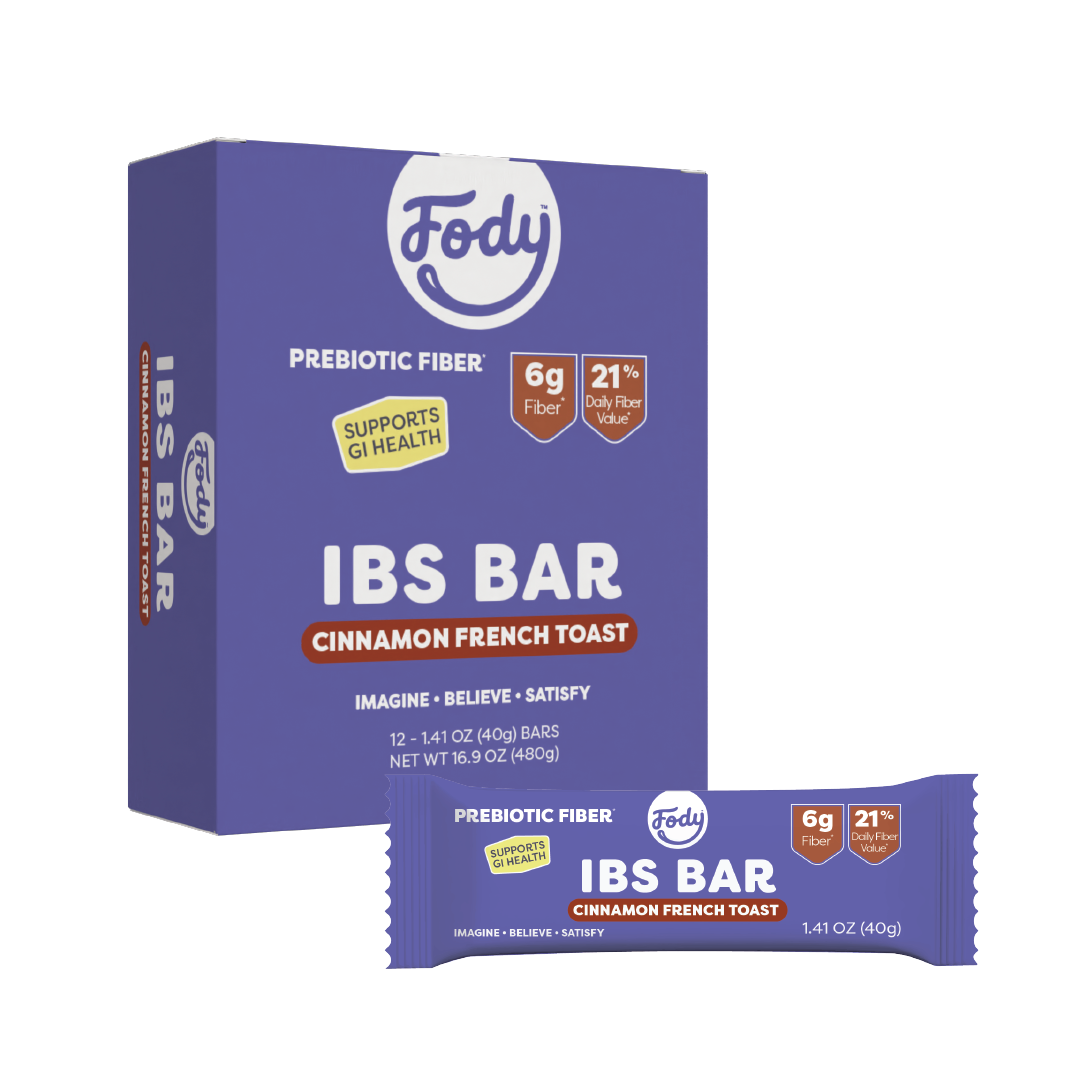
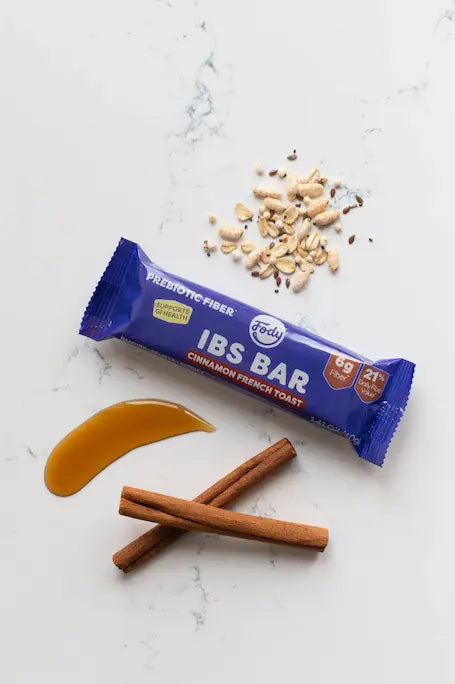 Cinnamon French Toast High Fiber Snack Bar - 12 Pack
Cinnamon French Toast High Fiber Snack Bar - 12 PackCinnamon French Toast High Fiber Snack Bar - 12 Pack
$32.99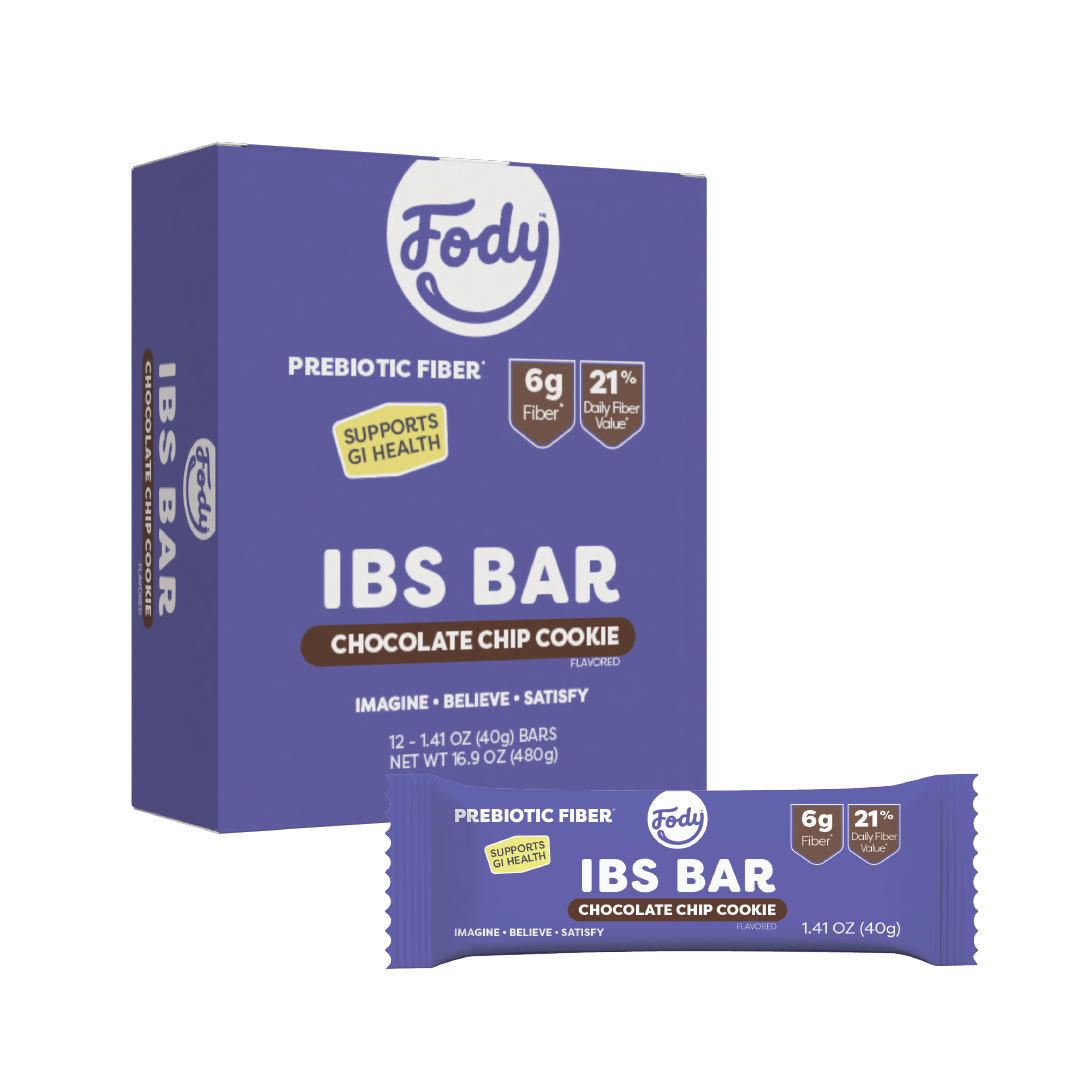
 Chocolate Chip Cookie High Fiber Snack Bar - 12 Pack
Chocolate Chip Cookie High Fiber Snack Bar - 12 PackChocolate Chip Cookie High Fiber Snack Bar - 12 Pack
$32.99









